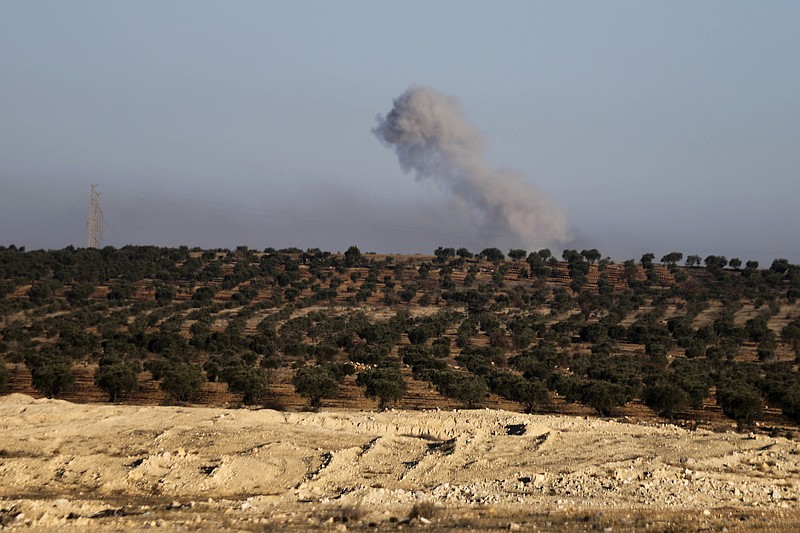The Obama administration is undoubtedly glad to have its media cheerleaders focus on allegations of Russian hacking in the presidential election this week.
Otherwise, much more of a light may have been thrown on the administration's utter failure in Syria, where rebel-held Aleppo fell and where homeless refugees are likely to be on the rise.
President Barack Obama had a chance as far back as four years ago to do the right thing when he declared Syrian President Bashar Assad could not cross the "red line" of using chemical weapons on his own people. But Assad did just that, and Obama let it go.
That virtually would be the president's policy regarding the country's civil war for the rest of his term.
Obama had the opportunity to help arm moderate rebels opposing Assad in 2013, but he would not. He could have exercised a number of options offered by his generals for a tougher response, but he would not. He had the chance to re-engage when Iran got involved and then Russia swooped in to help Assad in 2015, but he would not.
Some U.S. bombing and the deployment of a few U.S. Special Forces were all he would muster.
The result of the four-year "lead from behind" strategy is not only the humanitarian crisis in Aleppo and other parts of the country but also Russia's new hegemony in the Middle East and the rise of the murderous Islamic State to fill the power vacuum not only in Syria but also in Iraq, Libya and elsewhere.
And the dictator Assad? He's still in power.
As for Obama, he has said he wouldn't do anything differently.
"It's not the job of the president of the United States to solve every problem in the Middle East," he said earlier. We must be "modest in our belief that we can remedy every evil."
And his State Department this week pinned the blame on Syria, Russia and Iran for seeking a military rather than a diplomatic solution.
"The failure is in the belief that this war can be solved militarily," said spokesman John Kirby, "and the failure is on Russia for not putting the proper pressure on the Assad regime to stop the brutality, the gassing, the surrender, the starvation of their own people. That's the real failure."
The president's not asking, of course, but the 400,000 dead and 11 million homeless might have wished for a different outcome had he been more proactive.
